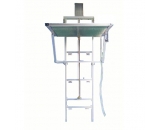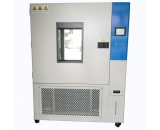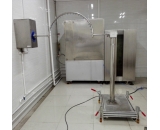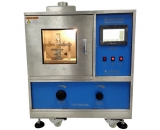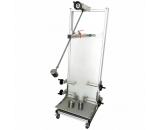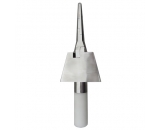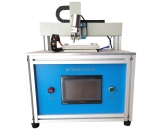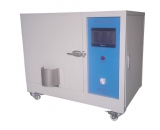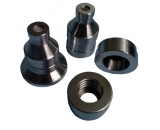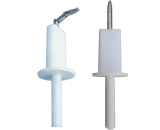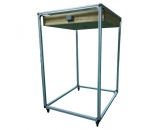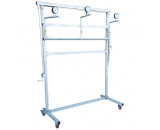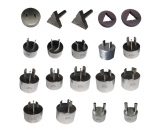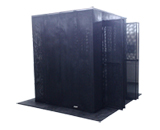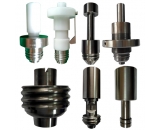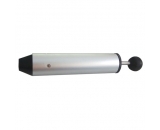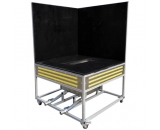CPSIA - Preemption and Exemption Update
Federal preemption means if a federal standard is in effect and applies to a particular risk of injury, and a state standard deals with the same risk, then the state standard is preempted. CPSIA is intended to preempt individual state laws, such as requirements of lead paint, lead content, phthalates, ATVs and the standard ASTM F963-07 as well.The CPSC has allowed states to submit their applications of exemption from preemption. In order to qualify for an exemption from preemption, the laws shall be in effect before Aug 14, 2008; furthermore, CPSIA does not preempt any warning requirement relating to consumer products or substances that is established pursuant to state law that was in effect on August 31, 2003. The Commission will review the submissions and decide whether the state requirements will remain in effect.
Here is the list of states having expressed their positions of the implementation of their state requirements:
State : California
Details: As of January 1, 2009, it will be illegal to sell, distribute, or manufacture toys and child care articles in California with greater than 0.1% of six specified phthalates, regardless of when or where the products were manufactured. The effective date of the CPSIA phthalate prohibition does not affect the implementation of California’s phthalate restrictions.
State :Maryland
Details:The Lead-Containing Children's Products Prohibition Act (HB 62) approved in May was withdrawn. Maryland is reviewing the state legislation to see what changes need to be made to make it consistent with the federal law. Any changes will be made during the 2009 session of the General Assembly, January-April 2009.
State : Massachusetts
Details:The Department of Public Health of Massachusetts has announced to withdraw the "Ban on Leaded Toy Jewelry Regulations" which was approved in March, 2008 and will follow the Federal Public Law 110-314 (CPSIA).
State : Washington
Details:
Department of Ecology has elected not to pursue an exemption from the preemption and withdrawn the lead, phthalates and cadmium requirements in the Children’s Safe Product Act of Washington. However, the dept will continue to develop a list of Chemicals of High Concern for Children (CHCC). 美国《消费品安全改进法》优先执行权和豁免的最新消息
联邦执法优先权是指,如果联邦标准在生效当中,并适用于某种伤害风险,同时有州的标准涉及同一种风险,那么联邦标准的执行优先于州标准。《消费品安全改进法》(CPSIA) 意欲相对于各州的法律,如含铅涂料、铅含量、邻苯二甲酸盐和ATVs等方面的要求,以及ASTM F963-07标准等,具有优先执行权。
美国消费品安全委员会(CPSC)已经允许各州递交豁免优先执行的申请。要获得豁免,州法规必须是在2008年8月14日以前生效的;并且,CPSIA不对根据2003年8月31日前生效的州法律制定的有关消费品或物质的警示要求具有优先执行权。委员会将对申请进行研究,并决定州法规是否仍然有效。
以下州已就其州法律的执行表明态度:
州 : 加利福尼亚
具体内容: 从2009年1月1起,在加州销售、分销或生产六种邻苯二甲酸盐含量超过0.1%的玩具和儿童护理品属违法行为,不论该产品是何时何地生产。CPSIA邻苯二甲酸盐禁令的生效不影响加州邻苯二甲酸盐限制的执行。
州 : 马里兰
具体内容: 撤销5月份批准的《含铅儿童产品限制法令》(HB 62)。马里兰州正在重新讨论该州法规,研究需要进行哪些修改,以便与联邦法律保持一致。将于2009年1-4月举行的立法会议上确定修改内容。
州 : 马萨诸塞
具体内容: 马萨诸塞州公共卫生部已宣布撤销2008年3月通过的《含铅玩具珠宝法规禁令》,遵循联邦公共法110-314 (CPSIA)的要求。
州 :华盛顿
具体内容:生态部已决定不申请豁免,并撤销《华盛顿儿童产品安全法》中有关铅、邻苯二甲酸盐和镉的要求。不过,生态部会继续制定儿童高度关注化学品(CHCC)清单。
页:
[1]
